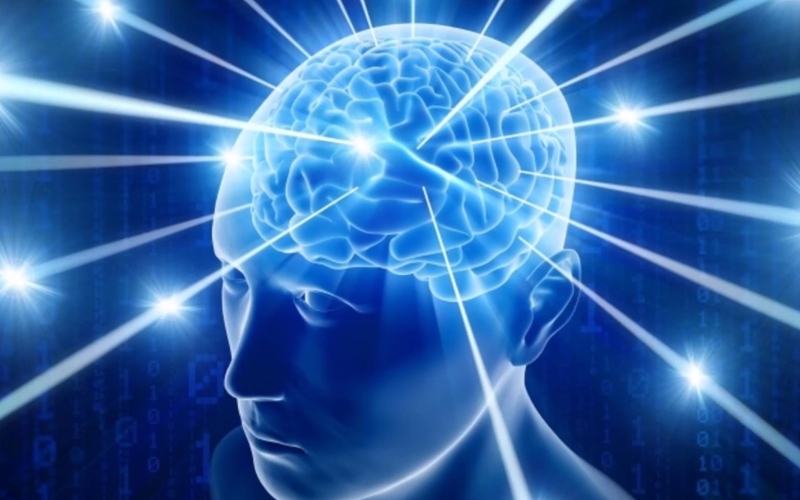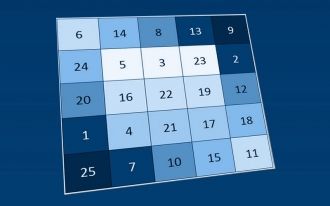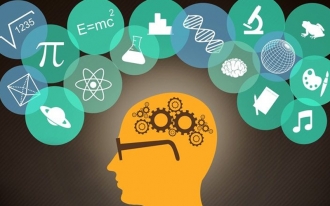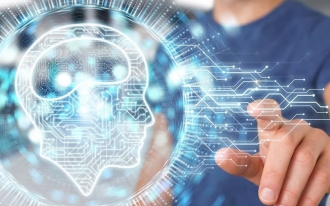- BRAINTRAIN |
- Blog |
- Brain Development |
- Developing Your Own Brain

Valeriy Krickiy 11.12.2019 1441 Comments
Information updates in the modern world accelerate daily. This challenges every individual, as failing to process and assimilate information in time often leaves people lagging behind, losing relevance in society. It’s no secret that the pace of progress will only increase, leaving humans no choice but to continuously self-develop across various knowledge domains to stay afloat. The brain handles all mental processes in the body. Thus, it’s our responsibility to understand the brain, use it correctly, and develop it timely.
What’s Important to Know About the Brain?
Technically, the brain is the central organ overseeing all bodily organs and processes. Without diving deep into anatomy, we need to grasp key brain properties to understand how to manage and develop this vital organ for successful living. Simply put, the brain is like a muscle, composed of neurons transmitting information, forming segments called synapses—or memory—which the brain uses lifelong. Unlike computer memory, the human brain can store over a thousand terabytes with proper development through trainers and nutrition. More crucially, neurons can multiply, enhancing brain performance and memory. We could discuss the brain further, but this suffices to focus on essentials. Let’s explore how to effectively develop the brain to tackle life’s challenges successfully.
Enhancing Brain Activity
Like any muscle, the brain develops under strain, but progress requires proper nutrition. Just as muscles need proteins, fats, and carbs, the brain needs specific nutrients to build neural networks. Additionally, tailored exercises enhance thinking speed and memory capacity. Scientists note that memory training mirrors muscle development.
- Nutrition is as vital as exercise for brain development. Scientists highlight B vitamins as essential for the brain’s health. Vitamin E is critical for preserving memory into old age, as its deficiency leads to memory loss in middle age. Water is vital, as the brain is 90% water—dehydration harms neurons, potentially killing them. Oxygen from walks is also key. Brain nutrition must be holistic, with all elements supporting tissue growth. The table below lists key brain nutrients.
|
Vitamin |
Benefits |
Foods |
|
B1 |
Enhances mental abilities |
Potatoes, grains, soybeans |
|
B2 |
Supports tissue growth |
Meat, bread, milk |
|
B |
Supports nervous system |
Tomatoes, nuts, bananas |
|
B6 |
Aids amino acid metabolism |
Dried fruits, fish, peas |
|
B12 |
Improves memory |
Milk, eggs, meat, cheese |
|
C |
Strengthens blood vessels |
Lemons, oranges, grapes, kiwi |
|
E |
Regenerates tissues |
Nuts, beans, green vegetables, bananas |
- Mozgotren Service acts as a brain trainer. Brain fitness is essential for building memory muscles, achievable only through daily effort. Brain activity encompasses memory, thinking speed, reaction, recall speed, erudition, and health—all part of cognitive development within one service. Varied exercises target multiple development areas, some focusing on specific skills. These aim to strengthen and expand neural connections. Typically, one brain hemisphere handles routine tasks, but strong training engages both, requiring exercises beyond simple problem-solving, like quickly naming a word’s written color, not its text color.
We’ll discuss exercises later. First, let’s address memory training, as forgetfulness is a major modern issue.
Popular Memory Types
To improve memory, understand its components. Each type has unique traits, requiring tailored development approaches. Memory development drives life success, making it a valuable self-investment yielding lifelong dividends.
- Short-Term Memory: Used for spatial orientation and quick situation analysis, it lasts up to 30 seconds and handles about six objects—enough for daily decisions. Some can recall this memory after long periods with specific exercises, discussed later.
- Long-Term Memory: Opposite of short-term, it focuses on significant information, developed through repetition and memorization. Information transitions to long-term memory best when its importance and utility are consciously recognized. Motivated students learn and retain better for their future.
- Working Memory: Similar to short-term but longer-lasting, it holds information needed for short periods, like a day. Working memory trainers are in demand, as many struggle to retain daily information.
- Sensory Memory: Acts rapidly, fading in a quarter-second due to the quick perception of senses. It maintains event continuity and, with conscious analysis, can enter long-term memory.
Many know these memory types but not how to train them effectively for goals. Let’s explore how memory trainers enhance these abilities.
Memory Development Through Trainers
Experts note the human brain is rapidly evolving in information processing and memorization speed. However, much information—like social media, ads, and TV—clutters short-term and working memory, serving no purpose for goals and tiring the brain. Before using brain trainers, learn to filter unnecessary information sources.
- Schulte Table: A grid of mixed numbers (1 to 25 or more) where you find each in order. It engages all memory types except long-term, widening your field of view and activating both hemispheres as you search for numbers and recall their positions. It also boosts reaction speed, as tasks are timed. For better second-hemisphere engagement, use flipped or scrambled versions.
- Sorting Words, Numbers, or Colors: Enhances concentration and short-term memory, similar to “Memory,” suitable for all ages.
- Color Search: Improves information processing speed by finding colors from lightest to darkest, also boosting concentration.
- Math Problems: Enhance logical thinking and concentration, as tasks are timed.
Dedicating 15–30 minutes daily to these trainers improves memory metrics, brain speed, and neural synapses. Importantly, these exercises avoid cluttering memory with irrelevant data, lacking heavy semantic load. After a month, you’ll notice faster thinking, clearer thoughts, faster reading, and more idea generation. Some tasks will take less time than before. Best of luck in your self-development!




